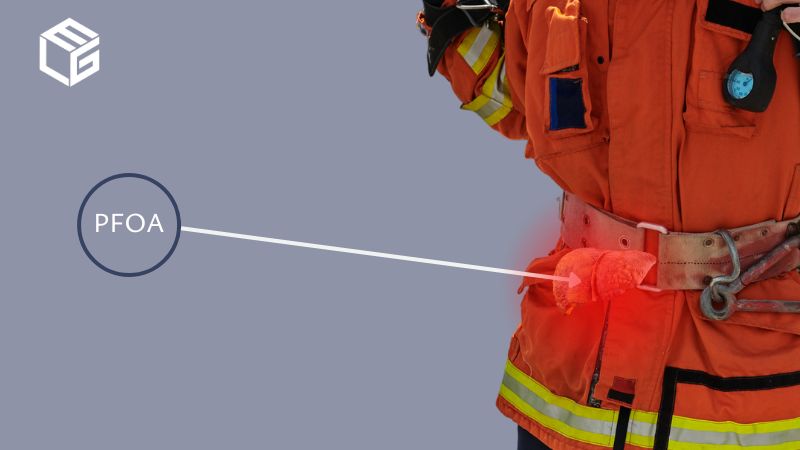-
About »
- Insulin MDL
-
Cases »
- Diseases
- Testimonials
- Government
- Contact
- Get Help Now
-

While liver cancer is typically the result of tobacco smoking, cirrhosis, obesity, and excessive alcohol consumption, it can also be caused by PFAS exposure from the firefighting foam AFFF. It has been widely used by military and civilian firefighters to put out fires stemming from flammable liquids and gases for over 50 years. Over 41,000 Americans will have received a liver cancer diagnosis by the end of 2022. Liver cancer is the third cause of cancer death, and it has a very unfavorable prognosis, with only 20% of patients surviving for five years or longer after diagnosis. According to a recent medical study, people with a high level of PFAS in their blood are more likely to develop hepatocellular carcinoma, the most common type of liver cancer. These people include firefighters. If you are or were a firefighter and now struggle with liver cancer, feel free to contact our AFFF attorneys, as they specialize in toxic exposure.
Claim ApplicationBelonging to the PFAS category, perfluooctane sulfate – PFOS – is a highly toxic chemical that has a strong association with hepatocellular carcinoma, the most frequently diagnosed and fatal type of liver cancer.
A very recent study from the medical journal JHEP Reports found that the blood samples of people with high PFOS levels were linked to metabolic changes in the liver. This suggests that the presence of PFOS in the body increases cancer risk by:
Earlier this year, the team, led by University of Southern California environmental health researcher Jesse Goodrich, established a connection between non-alcoholic fatty liver disease, a major risk factor for liver cancer, and PFAS exposure. It is estimated that by 2030, up to 30% of Americans will have it, which means a significant increase in the number of liver cancer patients. Researchers in this study identified certain metabolites linking PFOS exposure to liver cancer:
The conclusion of the research was that exposure to high PFOS levels was associated with a significantly greater risk of hepatocellular carcinoma, which occurs most likely via alterations in amino acid, glucose, and bile acid metabolism. Still, larger studies are necessary to confirm these findings. "Experimental evidence supports the ability of these chemicals to have toxic effects on the liver and to disrupt metabolic processes, so there is biological rationale to explain the association. This study attempts to pave the way for filling a key gap in our understanding of the consequences of being exposed to these chemicals," said Dr. Jennifer Permuth, a cancer epidemiologist and researcher at Moffitt Cancer Center in Florida.
Although military firefighters have a higher risk of liver cancer, line-of-duty civilian firefighters are also likely to develop it due to AFFF exposure. This fire suppressant, which has been used since 1967, contains a large amount of PFAS, a group of toxic chemicals, exposure to which can result in liver cancer, among other serious diseases.
Firefighters have a 9% higher risk of developing cancer and a 14% greater risk of dying from a malignant disease than the general U.S. population. Their regular use of AFFF is a major contributor to these grim statistics. Even the protective equipment firefighters have to wear on the job contains PFAS to prevent burns due to extreme temperatures, which is another source of toxic exposure.
The most common symptoms of liver cancer include the following:
Liver cancer has a latency of 12 years when it is caused by AFFF exposure. If you experience any of these symptoms and were or are a firefighter, please seek medical attention as soon as possible, as you may have liver cancer. To make sure you receive a correct and accurate diagnosis, it is best to visit multiple specialists, as the misdiagnosis rate is quite high among toxic exposure victims, including firefighters who use or have used AFFF.
Because liver cancer is often misdiagnosed, it is essential to make sure you have the right diagnosis by visiting more than one medical expert. The symptoms of this disease might not seem worrisome in the beginning, so many people overlook and ignore the early signs of liver cancer. Firefighters, whether military or civilian, must be extra cautious when it comes to their health, as cancer is the number one killer among this occupational group.
The following are some of the diseases and health conditions liver cancer resembles and can be misdiagnosed as:
There are numerous ways you can be misdiagnosed if you suffer from liver cancer, such as:
When you have a liver cancer diagnosis, do not hesitate to get in touch with our attorneys, whose main practice area is toxic exposure. Over the past few years, we have provided quality legal assistance to hundreds of firefighters who developed cancer due to AFFF exposure, so you can rest assured you will benefit from top-notch services. Following a thorough review of your documents, we will determine with certainty whether you are entitled to financial compensation from the AFFF manufacturers whose products you used on the job.
We strongly encourage military and civilian firefighters who developed liver cancer due to the use of AFFF to contact our diligent attorneys, as they may be eligible for compensation. To initiate the legal process, you only have to send in your employment or military records, which you must retrieve, and your medical records stating your diagnosis. After our resourceful legal team reviews everything, they will determine whether you are entitled to file a claim for AFFF exposure.
Eligible clients will have their claims filed with all the AFFF manufacturers responsible for their disease. We will do all in our power to obtain the maximum financial compensation you may be eligible for, and if our efforts are fruitful, you will receive the money you deserve for your suffering. It is important to note that our law firm operates on a contingency fee basis, which means the initial consultation is free of charge, and you will not have to pay our attorneys unless they get compensation for you.
